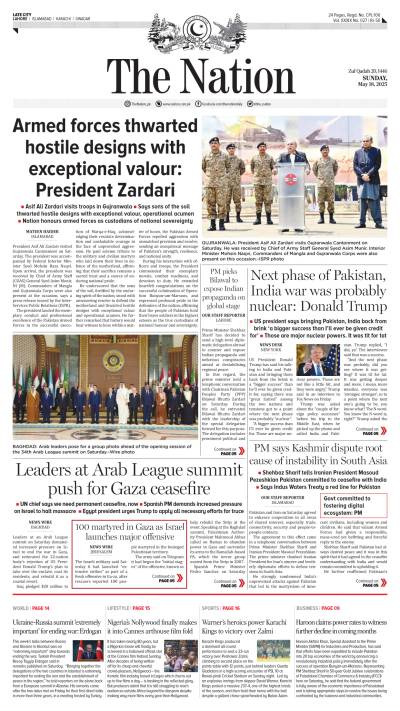Islamabad: The International Commission of Jurists (ICJ) has said that the Pakistani Supreme Court’s decision to uphold army courts to try individuals accused of committing terrorism related offences is a blow to human rights and the rule of law in the country.
In a split decision, nine judges of the Supreme Court held that the trial of suspected terrorists including civilians by military courts was within the constitutional framework of the country and met with the principles of criminal justice.
ICJ’s Asia Director Sam Zarifi said this judgment squarely puts Pakistan at odds with its international obligations and weakens the Supreme Court’s hard won reputation as the last resort for protecting the rights of Pakistani people. The court has missed an important opportunity to reverse the militarization of justice in progress under the guise of combating terrorism and to reinforce independence of the judiciary in the country, said a press release issue here on Thursday.
The trial of civilians in military courts for terrorism-related offences is incompatible with international standards, which require that those accused of any criminal offence are guaranteed a fair trial by
an independent, impartial and competent tribunal. ICJ’s briefing paper, published in April, provides a detailed assessment of the incompatibility of military trials in Pakistan with its international law
obligations. The Supreme Court, however, did not engage with international standards of fair trial and independence of the judiciary. At least eight judges of the Supreme Court were in favor of the opinion that it is for the Federal Government alone to ensure that their conduct “does not offend against the Public International Law or any International Commitment made by the State”.
Zarifi said it is very disappointing that the Supreme Court has abdicated its primary role in acting with the other branches of the State to implement its obligations under international law and that the Judiciary must respect international human rights commitments which include the right to a fair trial. Indeed, it is a core judicial responsibility to state what the law provides, whether the source of the law is international or domestic.
The military courts in Pakistan also have the power to award death sentences. On 2 April 2015, military courts convicted seven people of undisclosed offences in secret trials. Of them, six were sentenced to death and one was sentenced to life in prison.
Pakistan has resumed executions since December 2014, in response to a spate of terrorist attacks in the country. At least 196 people on death row have already been executed. According to available data, only a small fraction –less than 10 percent- of those executed were convicted of terrorist offences.
The ICJ opposes capital punishment in all cases without exception. The death penalty constitutes a violation of the right to life and the right not to be subjected to cruel, inhuman or degrading punishment. Where permissible under international standards, the death penalty may only be imposed pursuant to a final judgment rendered by a competent court after a legal process, which affords all possible safeguards to ensure a fair trial.
Ends/Online
PR/RS/AH






